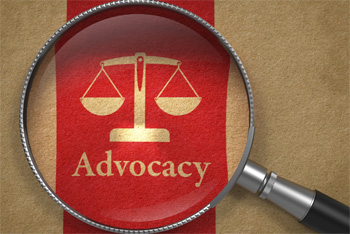 Feb. 5, 2014 – Later this month, the Wisconsin Supreme Court will consider a petition that could authorize the Wisconsin Office of Lawyer Regulation (OLR) to publicize when a lawyer is being formally investigated for alleged misconduct.
Feb. 5, 2014 – Later this month, the Wisconsin Supreme Court will consider a petition that could authorize the Wisconsin Office of Lawyer Regulation (OLR) to publicize when a lawyer is being formally investigated for alleged misconduct.
Currently, allegations of misconduct remain confidential during the OLR’s investigation phase and don’t become public until the OLR has completed its investigation and determines that it should file a formal complaint to the Wisconsin Supreme Court.
OLR Director Keith Sellen says lawyers certainly have an interest in maintaining a good reputation amidst frivolous claims. But the public also has an interest in knowing whether potential misconduct could hurt them physically, financially, or legally.
“The petition seeks to balance these interests,” Sellen said. “If an attorney is engaged in a pattern of serious misconduct, there should be a mechanism to protect the lawyer’s current or prospective clients. We are trying to protect an unsuspecting public.”
But Raymond Dall’Osto, who represents lawyers facing ethical or malpractice charges, says the investigation process should conclude before public notice is given.
“I’ve seen a lot of claims by clients who are simply disappointed in the outcome of their case,” he said. “A public notice has the potential to damage an attorney’s reputation. As currently written, I don’t think this petition adequately protects the lawyer’s interest.”
The Standard for Public Notice
The OLR petition – which will get a public hearing on Feb. 24 before the Wisconsin Supreme Court considers it – would allow OLR to issue a public notice on its website if a lawyer is being formally investigated for possible misconduct or medical incapacity.
The Wisconsin Supreme Court may authorize public notice in the following circumstances:
When the attorney’s continued practice of law presents substantial risk of physical, financial, or legal harm to the attorney’s clients or other persons;
When an attorney is unable to adequately attend to clients’ interests due to physical absence, abandonment of the practice, or physical or medical incapacity;
When the attorney is engaged in a pattern of conduct involving the receipt of advanced fees and the subsequent failure or inability to perform legal services for which the fees were advanced;
When the attorney is engaged in a pattern of criminal or fraudulent conduct; or
When, in the judgment of the supreme court, other good cause exists.
Before public notice is authorized, the attorney must show cause why the public notice should not be issued. Once a public notice is posted, OLR has six months to complete the formal investigation or show cause why it cannot be completed in six months.
Sellen said the Wisconsin Board of Administrative Oversight established a study committee after the Milwaukee Journal Sentinel, through a series of articles in 2010, criticized the confidentiality and other rules that govern lawyer misconduct cases.
As Sellen explained, the committee concluded that “public disclosure is a sensitive issue and requires a balance of the right of the public to know promptly about lawyer misconduct and the right of an attorney who is the subject of a complaint to protection from public disclosure complaints that have no merit.”
The OLR’s petition, says Sellen, addresses this issue by providing a means for earlier disclosure in cases where the public’s right to know is significant.
Although OLR handles hundreds of cases per year (last year, OLR handled 1,086 matters and conducted 589 formal investigations), Sellen said public notice would only be warranted in about two to three cases per year, based on what he sees now.
The supreme court would have to review the evidence before authorizing any disclosure, and Sellen said he expects the court could make that decision within 60 to 90 days. Thus, it could be months before public notice is actually issued.
“This is still a vast improvement,” said Sellen, who noted that formal investigations can take much longer than six months. The public currently gets no warning to spot attorneys who may pose a danger to the public during the formal investigation period.
But Dall’Osto, an attorney at Gimbel Reilly Guerin Brown LLP in Milwaukee and a member of the State Bar Board of Governors, believes the petition gives OLR too much discretion to decide whether public notice should be issued. The State Bar board did not take a position on the OLR petition, and Dall’Osto is not speaking for the board.
“If the OLR is required to show a clear and present danger to the public, then I might revisit my stance on this,” said Dall’Osto, speaking from his perspective as a defense lawyer. “I see a lot of people who are just trying to grind an axe against their lawyer.”
“If you are going to negatively impact someone’s business reputation at the investigation stage, it must be very clear what’s happening. In many instances, it isn’t clear at all until all the information is collected and reviewed,” Dall’Osto said.
Dall’Osto noted that other proceedings, such as John Doe proceedings, recognize the interests of those accused. “Once the lawyer is mentioned in the same sentence with misconduct, there are consequences, even if the lawyer has done nothing wrong.”
